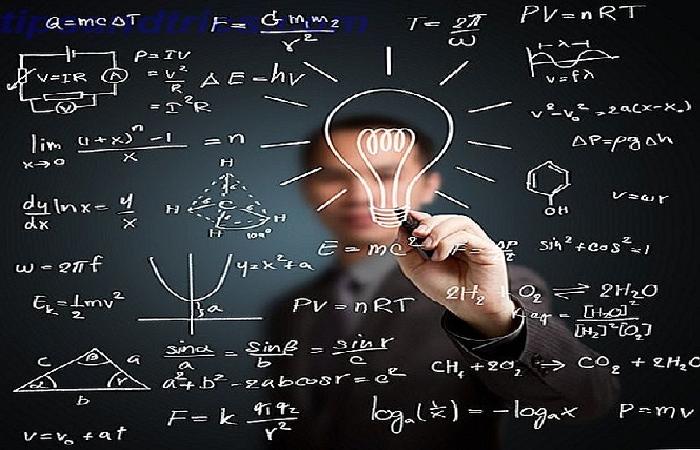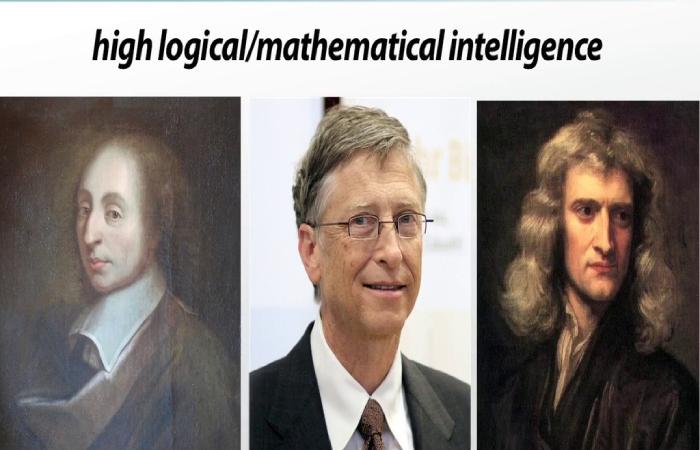Which Of The Following Is True About Mathematical/Logical Intelligence? – Logical-mathematical intelligence remains the ability to use logical reasoning and mathematical ability. Yes, it is the ability to think conceptually and abstractly, discern analytical or numerical patterns, and understand sounds, meanings, and rhythms.
Table of Contents
What remains Mathematical Logical Intelligence?

Mathematical-logical intelligence remains one of the eight intellects proposed by developing psychologist Howard Gardner in his Theory of Numerous Intelligences. It refers to thinking logically, reasoning deductively and inductively, solving problems efficiently, and understanding and manipulating abstract ideas.
It remains Closely Linked to Our Ability To:
- Pattern recognition: Identify and analyze patterns in data, information, and systems.
- Numerical fluency: working with numbers, performing calculations, and understanding quantitative relationships.
- Critical thinking: analyze information objectively, draw reasoned conclusions, and identify argument flaws.
- Deductive reasoning: Apply general principles to specific situations to reach logical conclusions.
- Inductive reasoning: drawing general deductions from specific observations or patterns.
- Abstraction: Understanding and manipulating abstract concepts and ideas that remain not linked to concrete objects or experiences.
- Problem-solving: Formulate and apply strategies to overcome challenges and achieve goals.
High Mathematical-Logical Intelligence Often Excel In Fields Such As:
- Mathematics and statistics.
- Computer science and engineering
- Science and research
- law and medicine
- Finance and business
- Logic games and puzzles
Though, it remains essential to remember that everyone owns this intelligence to some degree, it can remain developed and supported through practice and training. Solving puzzles, playing planned games, programming, and studying logic and mathematics can improve mathematical-logical intelligence.
Consequently, mathematical-logical intelligence remains the ability to think critically, examine information, solve problems, and understand abstract concepts using logic and reasoning. It is a valuable intelligence vital in many aspects of human life.
Do you have more questions about mathematical-logical intelligence or how it applies to specific situations? I’ll be happy to provide more information or examples.
What Ability Does a Logical and Mathematical Learner Have?

Logic and mathematics students possess various incredible skills thanks to their strong aptitude for logic, reasoning, and number manipulation. Here are some essential skills they tend to excel at:
- Pattern Recognition and Analysis: As you mentioned, these learners effortlessly recognize patterns and connections in data, information, and systems. They can see the “bigger picture” by putting together seemingly unrelated elements, allowing them to:
Solve problems effectively: They can devise logical and efficient solutions to complex challenges by identifying underlying patterns and relationships.
Predict consequences: Their ability to anticipate patterns assists them in forecasting future outcomes and making knowledgeable decisions.
Making intelligence of complex situations: They can break down complicated problems into manageable parts, analyze each piece, and reassemble them into an intelligible understanding.
- 2. Abstract reasoning and conceptualization: These students thrive in abstract ideas and concepts. They can:
Understand intangible theories: They easily understand complex concepts such as mathematical principles, scientific theories, or philosophical arguments.
Manipulate abstract principles: They can apply abstract concepts to concrete situations, developing innovative solutions and creative approaches.
Understand challenging topics: Their ability to think abstractly makes them excel in mathematics, physics, computer science, and philosophy.
- Serious thinking and problem-solving: Logic and mathematics students remain natural serious thinkers and skilled problem solvers.
They examine information objectively: they evaluate evidence and influences without bias, identifying flaws and inconsistencies.
Draw reasoned conclusions: They do not jump to conclusions but carefully consider all possibilities before arriving at a logical result.
Remember, these remain just a few skills that characterize logical and mathematical learners. Their particular métiers and areas of interest may differ, but their communal aptitude for logic, reasoning, and statistics make them valuable assets in numerous fields. If you want to travel more features or have any specific questions, don’t hesitate to ask! I am happy to investigate deeper into this captivating area of human intelligence.
What Would Somebody With Logical-Mathematical Intelligence Remain Good At?

People with logical-mathematical solid intelligence excel in many areas, drawing on their exceptional pattern recognition, reasoning, and problem-solving. Skills Here are some fields where they typically shine:
Which Of The Following Is True About Mathematical/Logical Intelligence? Academically:
Mathematics and statistics: Their natural affinity for numbers and understanding abstract concepts make them stand out in these fields. They can easily understand complex mathematical concepts, perform calculations with ease, and analyze data effectively.
Computer Science and Engineering: Your logical thinking and problem-solving skills are well suited for these fields. They can understand complex algorithms, design efficient systems, and solve technical problems effectively.
Science and research: Their analytical mind and critical thinking allow them to excel in scientific research. They can effectively design experiments, analyze data, draw reasoned conclusions, and contribute to scientific advances.
Professionally:
Law and Medicine: Their strong analytical skills and critical thinking ability make them well-suited for these demanding professions. They can analyze complex legal arguments, diagnose medical conditions effectively, and make sound decisions under pressure.
Finance and Commercial: Their ability to manipulate numbers and understand financial concepts makes them optimistic in these fields. They can analyze financial data, make knowledgeable investment decisions, and develop effective trading strategies.
Mysteries and logic games: Their natural feeling towards pattern recognition and problem-solving makes them master puzzles and logic games such as chess games, sudoku, and Rubik’s Cube.
People With Logical-Mathematical Intelligence Also Tend To Thrive In Roles and Activities That Involve:

Problem Solving: They enjoy responsibility for complex challenges, designing solutions, and analyzing results.
Analytical thinking: They excel at analyzing complex situations, classifying underlying patterns, and drawing logical conclusions.
Data analysis: They have the skills to understand data, identify trends, and extract meaningful information.
Abstract thinking: They comfortably navigate the world of abstract concepts and philosophies, developing innovative solutions and approaches.
Strategic Planning: Their skill to think ahead, anticipate consequences, and plan efficiently makes them valued assets on any team.
Which Of The Following Is True About Mathematical/Logical Intelligence? – However, it remains essential to remember that logical-mathematical intelligence remains only one feature of human intelligence. While people with this intelligence may excel in some areas, their interests and abilities can remain incredibly diverse. Some may follow more creative or inspired fields, applying their analytical skills in unconventional ways.
Related posts
Featured Posts
Vanessa Bryant: Who is She? Vanessa Bryant Net Worth 2021
Vanessa Bryant Net Worth – The mother nationality of Vanessa is the American Vanessa Cornejo Urbieta. However, she was born…
What exactly is Google App Console? – Smart Tech Crunch – 2022
You may expand your Google Play company by using the Google Play App Console to publish your applications and games….


